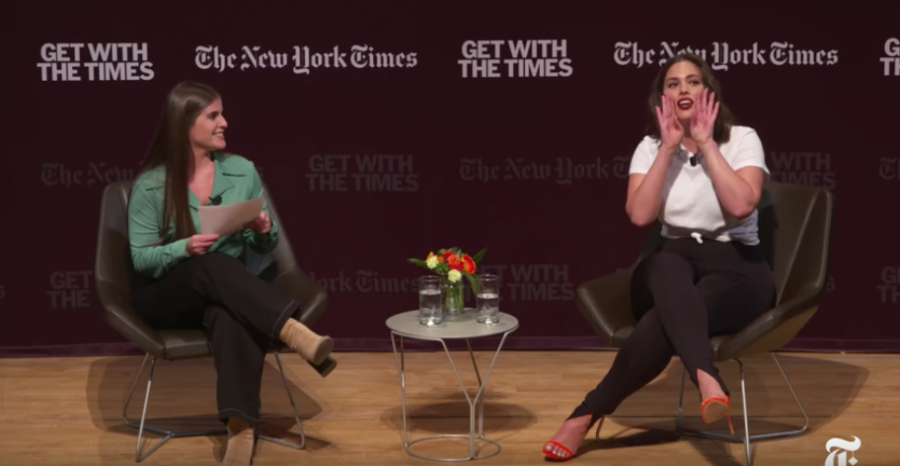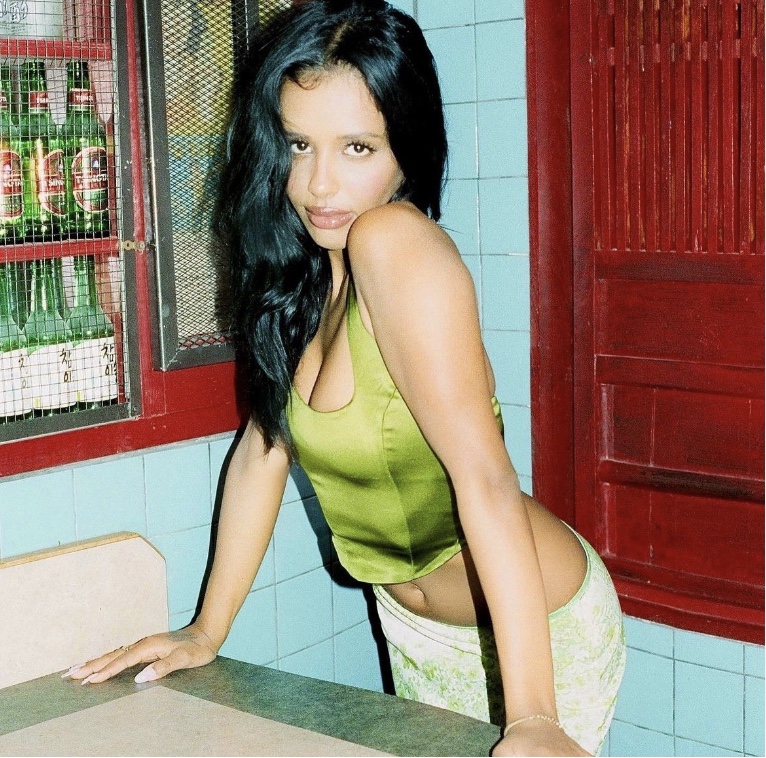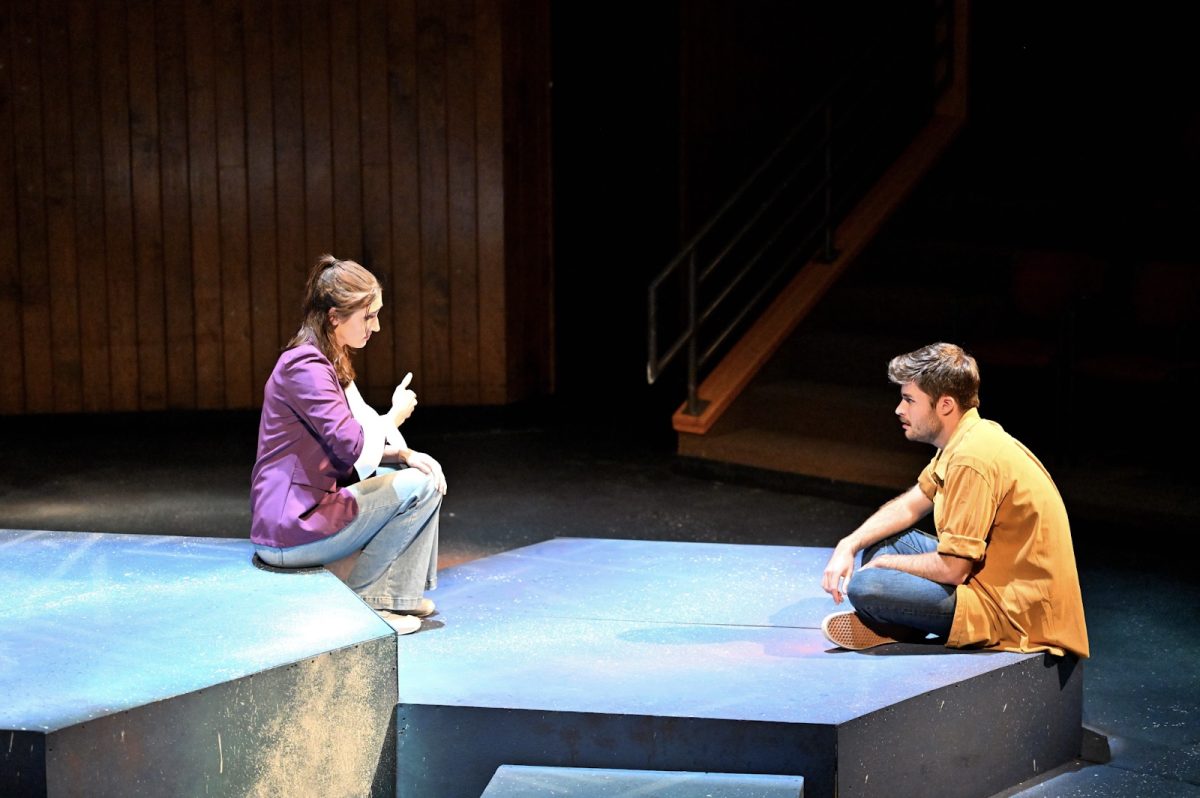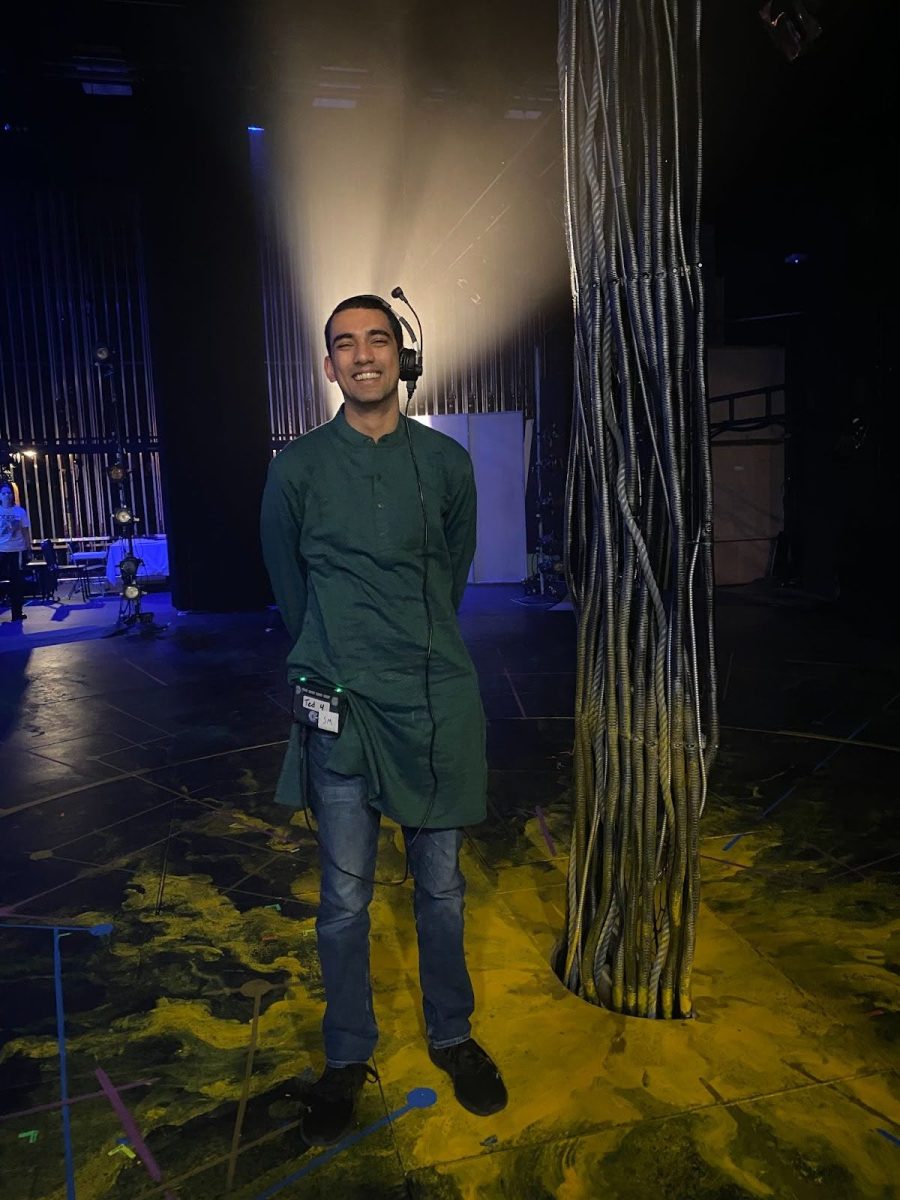As female students from all across Wake Forest’s campus gathered to watch “Get With The Times: Reshaping Beauty with Ashley Graham,” the model herself documented her preparation via Instagram. The event got off to a great start, as anything catered by Chipotle goes. However the live-stream premiere was a little rocky when Joanna Nikas, Fashion and Style editor for The New York Times, and moderator for the event called us “West Forest.” I’m pretty sure the entire building could hear the collective groan that came from Benson 401. After that first hiccup, the interview began and Graham seemed game for any question thrown at her.
The interview started with some background provided by Graham herself. She discussed how she was discovered (in a shopping mall), why she moved to New York City to pursue a career in modeling (she didn’t want to go to college) and how terrible financial decisions almost sent her back to Nebraska (she spent her entire paycheck, not realizing she needed to save for taxes). Graham addressed the specific struggles of being a plus-sized model within the fashion industry. She was constantly told she was too big for gigs, or if she did book something that she was expected not to speak or give opinions. She called herself a glorified mannequin. She also noted the exact moment she knew things needed to change. It was when her agent told her,
“Put the Snickers down, Ashley, it’s time to get serious.”
In order to change the toxic culture surrounding fashion, predominantly the issue of inclusion of diverse women in both size and race, Graham stated her conscious change in approach, specifically kindness. In addition to using kindness as part of her motivation for improving the industry, Graham also changed how she looked at herself. Instead of focusing on the constant pressure to be a smaller size, or to change her appearance, she focused on humility, asking herself, “How can I be better?” The rest of the interview focused on this mantra, with Graham dispensing advice based on all her experience:
1. On recognizing her own role, and how she could turn that into a business: “People know me for this, let me make that for them.”
2. On getting yourself noticed by larger companies and being taken seriously: “Fake it ‘til you make it.”
3. On getting screwed over and learning from your mistakes: “You have to understand every part of your business; don’t be afraid to ask questions.”
4. On being a conversationalist: “Anyone can do a podcast, all you need is a microphone and a place to publish,” (Graham’s own podcast is called “Pretty Big Deal”).
5. On building a brand: “Use your platform and use it wisely.”
The overarching message she conveyed with her advice was to simply have enough confidence in yourself and your work to put yourself out there. Oftentimes, when celebrities and public figures give their story of how they became who they are, it seems more like a serendipitous series of coincidences and opportunities than a roadmap to success, but Graham consistently emphasized that anything can be achieved with enough effort.
A common theme throughout the interview was Graham’s candor; she took no pains in talking about her flaws, struggles and mistakes. Her candid responses made the conversation seem more personal — that despite the screen, she could be sitting right in front of you, telling you to your face exactly what she thinks. At one point she even criticized one of the questions being asked, saying that she hated being asked it and then refused to answer it. Graham also, unsurprisingly, didn’t avoid sensitive topics, calling for more diversity and calling out the double standards in her industry. “We don’t judge men based on their size,” she said.
The interview was concluded with a question-and-answer portion, during which she was asked which brands are displaying exemplary policies on diversity and size inclusion. She cited her own campaign as an ambassador for Revlon with the slogan “Lipstick doesn’t have a size” and commended designers Nike, Dapper Dan within Gucci, Michael Kors and Christian Siriano for their inclusive efforts. She also briefly touched on the issue of tokenism in media and her campaign to challenge brands not to tokenize race but to be consistent with having diversity in their advertisements. Graham concluded the interview by asking her audience “What do I want my legacy to be on this Earth?” As a revolutionary figure in the beauty community, Graham is inspiring a new generation of changemakers, one panel at a time.
The event was hosted by the Wake Forest chapter of HerCampus led by President Katina Porras and Vice President Taylor Knupp. HerCampus chose the Wake Forest chapter to host this event and stream the interview, including marketing the event themselves. When asked their motivation for wanting to host this event, the women stated that it was encouraging women and young girls to embrace their size. Especially with the summer months approaching, women often feel pressure to have a “bikini body,” but Graham’s message works to help lessen that pressure.








